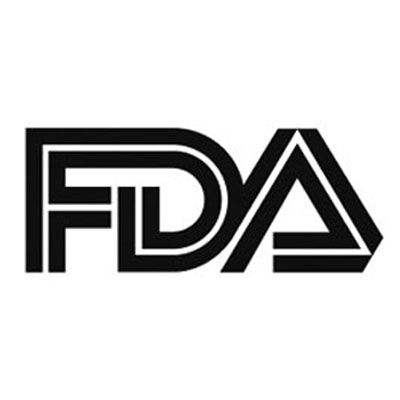FDA Grants Breakthrough Therapy Designation to Margolimab in Newly Diagnosed MDS
The FDA has granted a Breakthrough Therapy designation to magrolimab as treatment of patients with newly diagnosed myelodysplastic syndrome.

The FDA has granted a Breakthrough Therapy designation to magrolimab as treatment of patients with newly diagnosed myelodysplastic syndrome (MDS), announced Gilead Sciences, Inc, developer of the drug, in a press release.1
“The Breakthrough Therapy designation recognizes the potential for magrolimab to help address a significant unmet medical need for people with MDS and underscores the transformative potential of Gilead’s immuno-oncology therapies in development,” said Merdad Parsey, MD, PhD, chief medical officer, Gilead Sciences, in a statement.
This decision is based on the positive findings that have been reported for magrolimab in combination with azacitidine in an ongoing phase 1b study (NCT03248479) of patients with previously untreated intermediate-, high-, and very high-risk MDS. These findings were recently presented during the 2020 European Hematology Association Annual Congress.2
According to these findings, 91% of the evaluable patients (n = 33) who were treated with magrolimab plus azacitidine achieved an objective response, and 42% had a complete response (CR). The responses appeared to deepen overtime with a 56% CR rate in patients with ≥6 months of follow-up.
The median time to initial response was 1.9 months with the combination, which is faster than the expected time with azacitidine alone. The median duration of response had not been reached after a median follow-up of 5.8 months (range, 2-15). At 6 months, 91% of the responding patients remained in response. The median overall survival (OS) was also not reached (range, 1.4-18.3 months ongoing), but the 6-month OS estimate was 100%.
The most common treatment-related adverse events (AEs) or AEs of special interest included anemia (44%), fatigue (18%), infusion reaction (18%), neutropenia (8%), and thrombocytopenia (5%). Treatment-related febrile neutropenia was observed in this study, but no patients discontinued treatment due to an AE.
The study included 39 patients with MDS who had a median age of 70 years (range, 47-80), and 28% were intermediate risk while 64% were poor risk. Additionally, 31% of patients had therapy-related MDS while 13% had TP53-mutant disease. The purpose of this study was to determine the safety and efficacy of magrolimab in combination with azacitidine in patients with previously untreated higher-risk MDS. No maximum tolerated dose had been reached.
This first-in-class investigational anti-CD47 monoclonal antibody, magrolimab, is currently under evaluation in the phase 3 ENHANCE study (NCT04313881) as treatment of patients with previously untreated higher-risk MDS. The agent is designed to interfere with recognition of CD47 by the SIRPα receptor on macrophages; this blocks signals cancer cells use to avoid being ingested by macrophages. The randomized, double-blind, placebo-controlled multicenter study aims to evaluate the efficacy of the combination compared with placebo and azacitidine.1
The primary end point of ENHANCE is CR rate and duration of CR. Secondary end points include OS, objective response rate, duration of response, duration of red blood count transfusion independence, progression-free survival, event-free survival, relapse-free survival, minimal residual disease–negative response rate, time to transformation to acute myeloid leukemia (AML), and measurement of AEs.
To be included in this study, patients must have intermediate-, high-, or very high-risk disease according to the Revised International Prognostic Scoring System, be previously untreated, and have adequate performance status, as well as hematological, liver, and kidney function. Patients are excluded from enrolling to the study if they had prior treatment with CD47 or signal-regulatory protein, alpha targeting agents, any prior antileukemic therapy, or contraindications to azacitidine. Additionally, patients cannot have clinical suspicion of active central nervous system involvement by MDS, known active or chronic hepatitis B or C interferon or human immunodeficiency virus, or be pregnant/breastfeeding.
This study remains ongoing, while other clinical trials are evaluating the use of magrolimab as treatment of both hematologic and solid tumors. The agent has received a Fast Track designation for the treatment of MDS, AML, diffuse large B-cell lymphoma, and follicular lymphoma as well as Orphan Drug designations for MDS and AML.
References
1. Gilead’s magrolimab, an investigational anti-CD47 monoclonal antibody, receives FDA breakthrough therapy designation for treatment of myelodysplastic syndrome. News Release. Gilead Sciences, Inc. September 15, 2020. Accessed September 15, 2020. https://bit.ly/3iyoUnx
2. Sallman D, Monzr AM, Adam A, et al. The first-in-class anti-cd47 antibody magrolimab combined with azacitidine is well-tolerated and effective in mds patients: phase 1b results. Presented at: 2020 European Hematology Association Congress; June 11-21, 2020; Virtual. Abstract S187.